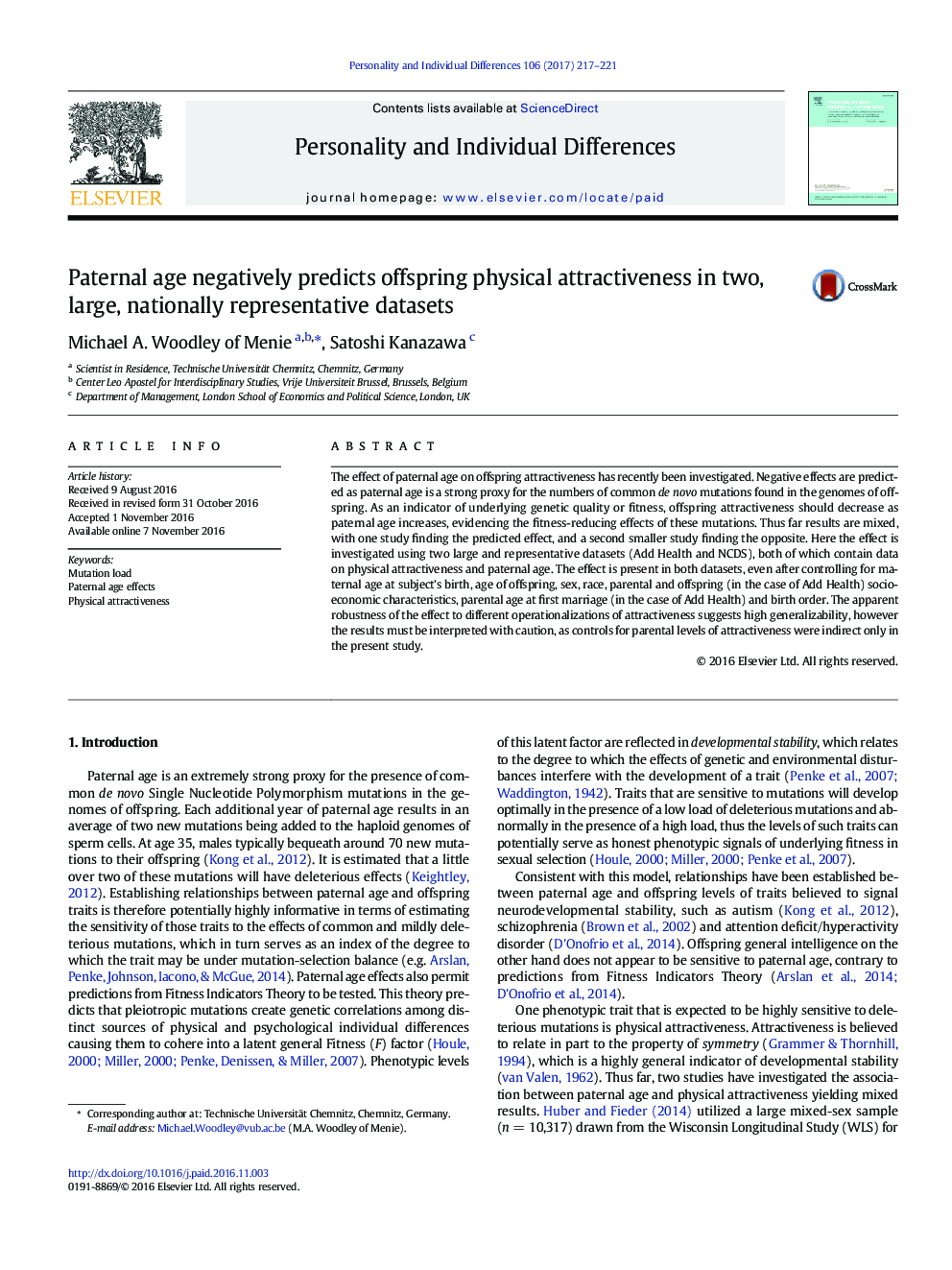| Article ID | Journal | Published Year | Pages | File Type |
|---|---|---|---|---|
| 5036204 | Personality and Individual Differences | 2017 | 5 Pages |
â¢Effect of paternal age on offspring attractiveness is investigated in two datasets.â¢Various covariates are utilized.â¢Significant negative effects are found in both datasets.â¢Effects are independent of birth order.â¢Findings consistent with paternal age as a source of new mutations in offspring
The effect of paternal age on offspring attractiveness has recently been investigated. Negative effects are predicted as paternal age is a strong proxy for the numbers of common de novo mutations found in the genomes of offspring. As an indicator of underlying genetic quality or fitness, offspring attractiveness should decrease as paternal age increases, evidencing the fitness-reducing effects of these mutations. Thus far results are mixed, with one study finding the predicted effect, and a second smaller study finding the opposite. Here the effect is investigated using two large and representative datasets (Add Health and NCDS), both of which contain data on physical attractiveness and paternal age. The effect is present in both datasets, even after controlling for maternal age at subject's birth, age of offspring, sex, race, parental and offspring (in the case of Add Health) socio-economic characteristics, parental age at first marriage (in the case of Add Health) and birth order. The apparent robustness of the effect to different operationalizations of attractiveness suggests high generalizability, however the results must be interpreted with caution, as controls for parental levels of attractiveness were indirect only in the present study.
